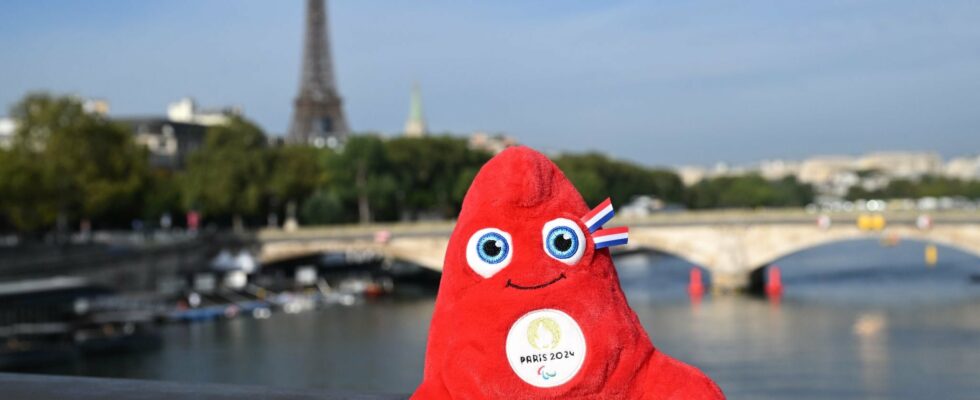The clearing, finally! The sanitary state of the Seine improved at the end of June to become compliant with bathing standards on certain days, four weeks before the Olympic events planned in the river. But the suspense remains. The haste with which the Paris city hall, the regional prefecture and the Organizing Committee (Cojo) communicated to AFP on Thursday, July 4, a day in advance, the weekly bulletin on the quality of the Seine water speaks volumes about their relief.
Unfit for swimming for almost the entire month due to excessive bacteriological pollution, the river finally fell below the thresholds defined by the European directive for four days, including two consecutive days (June 28 and 29), at all four sampling points in the capital.
These first good results, linked in particular to sunny weather in the early days of summer, were obtained despite a river flow “four to six times” higher “than the usual summer flow”, the organizers emphasize. For the town hall and the regional prefecture, this improvement “is the consequence of the return of the sun and heat”, but also “of the work carried out as part of the Seine Water Quality Improvement Plan” that they have been co-managing since 2016.
This plan allows “today we can calmly consider holding the events”, reacted the Minister of Sports and the Olympic Games Amélie Oudéa-Castéra, welcoming “satisfactory” results.
“Good omen”
For the deputy for the Olympic Games and the Seine at Paris City Hall, Pierre Rabadan, these positive results despite the high flow, an “unfavorable factor for water quality”, are “rather a good omen for the future”. The suspense remains, however, for the future.
Although the water quality was “compliant” over six days “for almost all four sampling points”, as the authorities point out, the results show a local deterioration on June 27, and a general deterioration on the 30th. The cause was “local, one-off pollution” and “precipitation upstream”.
The moment of truth is approaching for the organizers of the Games: after the opening ceremony on July 26, the Seine must host the triathlon events (July 30 and 31, August 5), swimming-marathon (August 8 and 9) and paratriathlon (September 1 and 2). In the event of heavy rainfall, untreated water – a mixture of rain and wastewater – can be discharged into the river, a phenomenon that retention structures inaugurated before the Games are intended to prevent.
If these works prove insufficient in the event of heavy rain, plan B consists of postponing the events by a few days, but not changing the location.
“Adaptation” to the flow rate
The flow of the Seine also remains abnormally high for the season, causing the organizers a lot of worry. Due to heavy continuous rains in the spring and since the beginning of June, the flow rate has been above 300 m3/s almost all month, two to three times the summer norm usually set between 100 and 150 m3/s. It has sometimes risen above 600.
“What we have to avoid is anything above 500 m/s (because) the boats are not going at 9 km/h but at 12 km/h,” Thierry Reboul, director of ceremonies at the organizing committee, explained to AFP on Thursday, referring to the fleet of boats on the river during the opening ceremony. Between 300 and 500 cubic meters, there will be “an adaptation”, “like removing the boats that are the highest,” he said.
Thierry Reboul, who received the weather forecast for the next three weeks on Thursday morning, assures that “we will return to normal.” Another welcome ray of sunshine for the organizers: the reopening this week of the Sully Bridge, the central crossing point of the ceremony between the Île Saint-Louis and the left bank, whose arches had been damaged in January by a barge.
After several months of work, the site will be cleared on Saturday and road traffic will reopen on the bridge, Pierre Rabadan told AFP. Under the bridge, river traffic returned to normal on Tuesday, he said.
